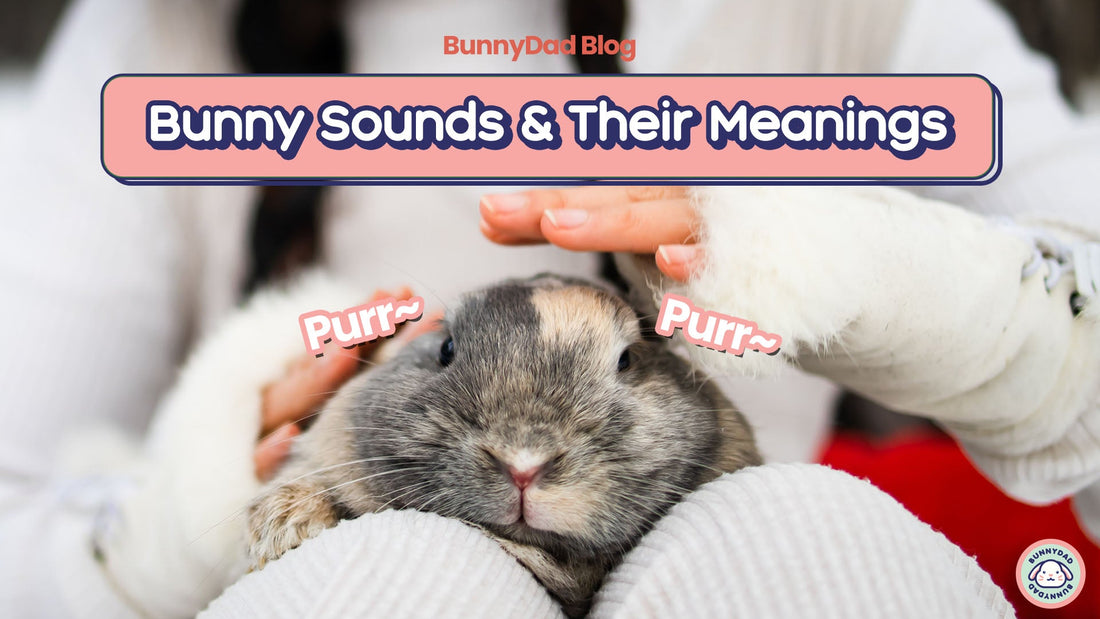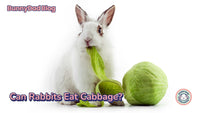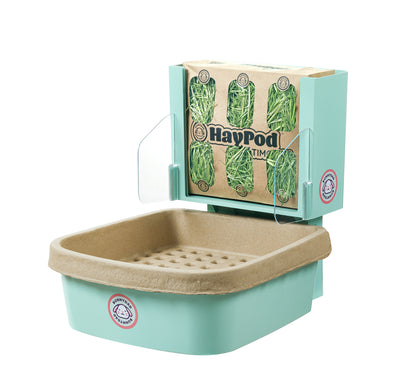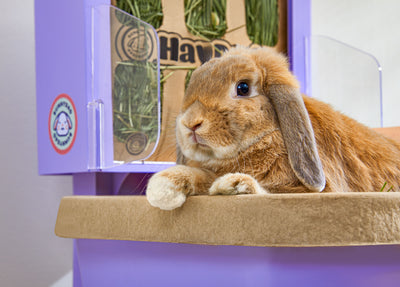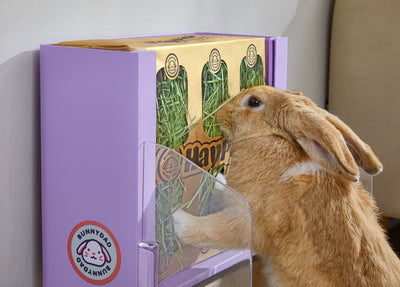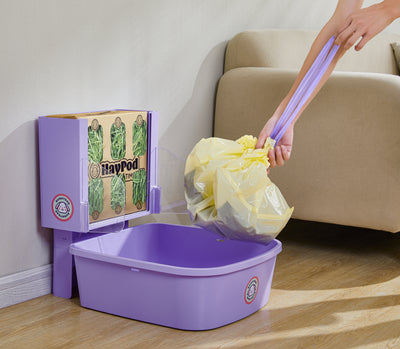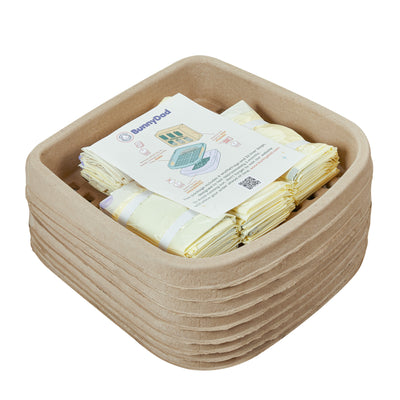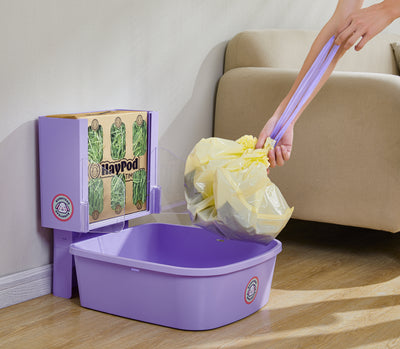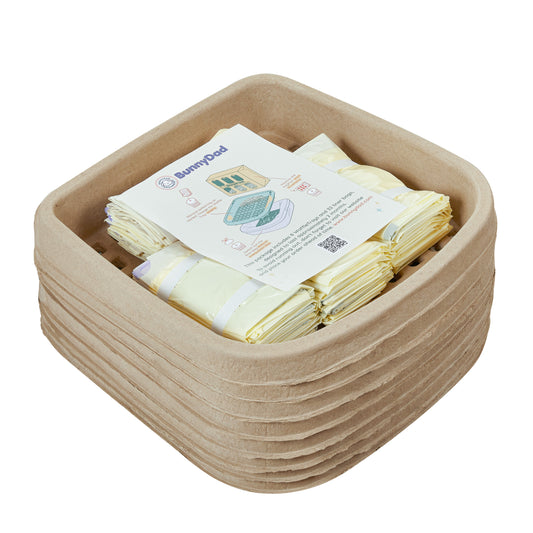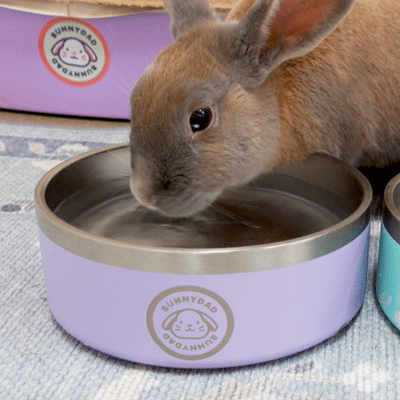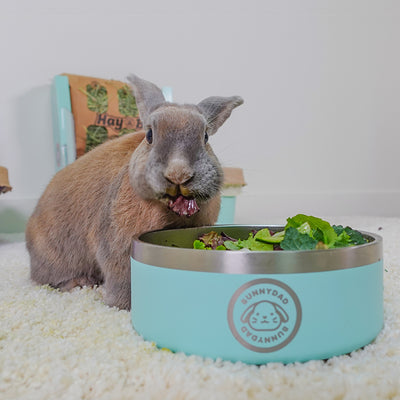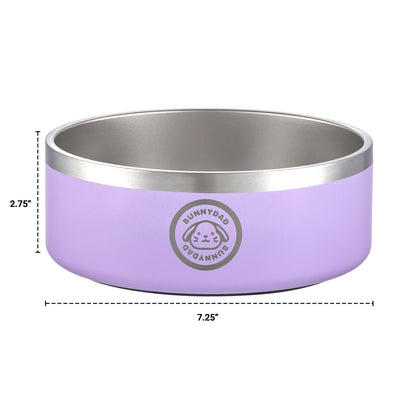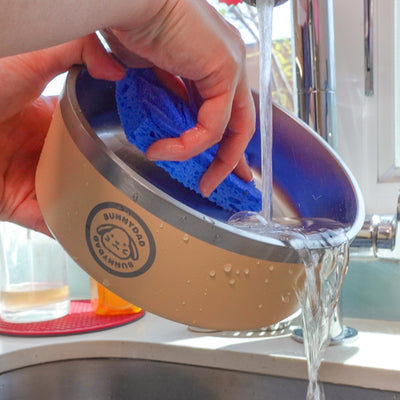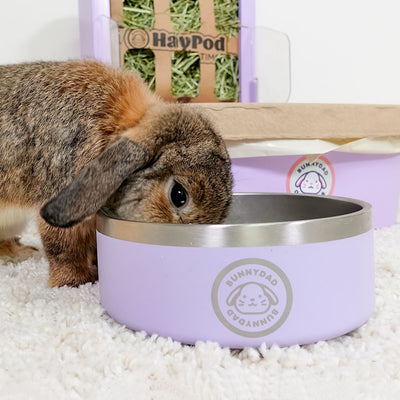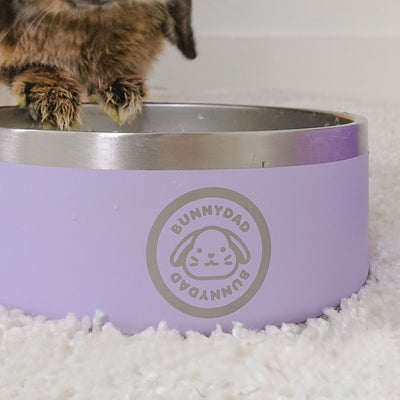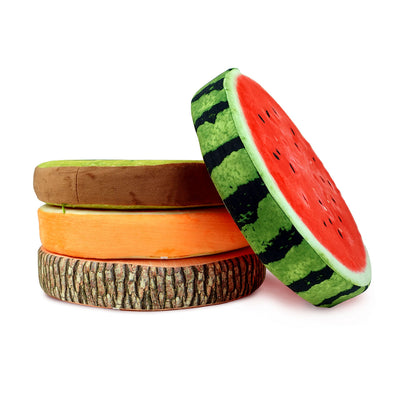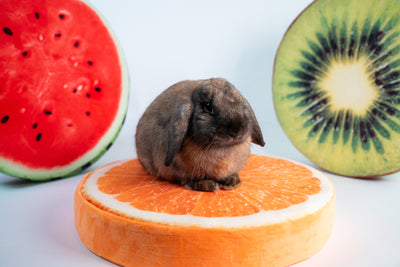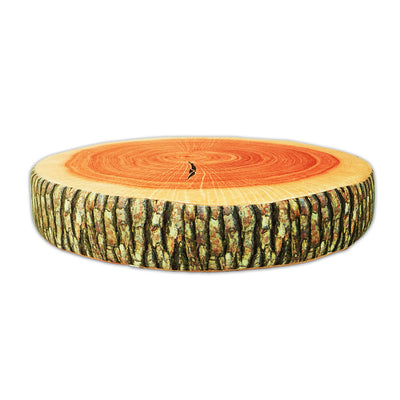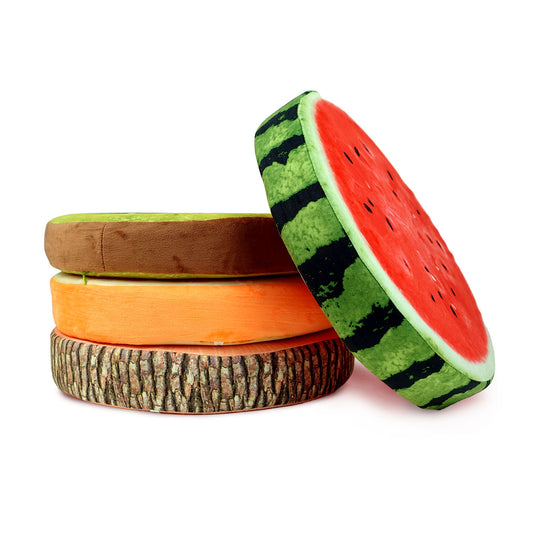Key Takeaways
- Purring Indicates Contentment: When rabbits softly grind their teeth, it's a sign they're relaxed and happy.
- Growling Signals Aggression: A growl from your rabbit means they're feeling threatened or annoyed.
- Thumping as a Warning: Rabbits thump their hind legs to alert others of perceived danger.
-
Honking Shows Excitement: A series of honks or oinks often indicates your rabbit is excited or seeking attention.
Hey there, BunnyGang!
Have you been wondering how to better communicate with your rabbit? Understanding and responding to your bunny’s signals and language is the best way to make sure that you’re addressing their needs, and it’s a crucial element for bonding with your pet. Just like people, rabbits use different sounds and behaviors to communicate. Whether they’re letting you know if something hurts, if they’re uneasy, if they’re overflowing with joy, etc., learning to interpret these verbal and nonverbal cues will do wonders for your relationship and for the overall well-being of your pet.
Below is a list of the 12 most common rabbit sounds, followed by explanations of what they mean. Rabbits can be very territorial in nature, so some of these sounds are only likely to be heard specifically in reaction to other unwanted animals in their space. Although, if your bunny deems someone to be an intruder in their space, whatever their species, they’re likely to make their feelings known. Once a rabbit accepts people or other animals into their family, that territoriality should mostly disappear, with the possible exception of when it comes to their food and/or litter boxes.
Put your best foot forward as you attempt to get on the same page with your bunny, and commit these sounds and their meanings to memory. You’ll be grateful for learning this new language. Doing so may also help you preempt some delicate situations before they turn sour.
(Sounds of Joy)
Purring: Happy, comfortable, and content.
Honking/Oinking: Happy and excited! Ready to play!
Humming: Wooing a mate/Trying to get the attention of a romantic interest.
Clucking: "Yum!" - this usually indicates they're enjoying their food.
(Sounds of Anger)
Snorting: Grumpiness or indignance. Gearing up for a possible fight.
Hissing: Usually used toward other rabbits, telling them to back off.
Growling: Anger and readiness to attack.
(Sounds of Fear and Pain)
Whining or Whimpering: Discomfort about their environment/wanting to leave
Foot Stomping or Thumping the ground: A nervous warning that something dangerous might be near and communicating this to other rabbits nearby
Teeth Grinding: Pain or severe discomfort.
Screaming: Extreme fear. Absolute certainty that they're about to die.
(Sounds of Respiratory Issues)
Wheezing, extended sneezing, or chronic snoring: Allergic congestion or other respiratory difficulty. Time for a checkup with a vet.
There are many ways a rabbit can communicate its feelings, though these are by far the sounds you’re most likely to encounter. Now that you’ve committed them all to memory, let’s take a deeper look at each one.
Purring: Happy, comfortable, and content

Much like a cat, rabbits will purr when they feel happy and at ease with the world. Some rabbits are loud purrers, and some are quiet, but this rumble that comes from gently rubbing their teeth together amidst feelings of contentedness is quite ubiquitous.
Comfortable cushions, having their ears stroked, and relaxing next to their human are all likely ways to get a bunny purring.
Honking/Grunting/Oinking: Happy and excited! Ready to play!
This is a sound of delight, often when a rabbit sees a person or animal they love, and are excited to play with. These honks or oinks can sound similar to those of a small, similarly excited dog or pig.
For anybody wondering, the appropriate response when your rabbit makes these sounds at you is to stop whatever you’re doing and promptly administer ear scratches, snuggles, and start playing.
Humming: trying to get the attention of a romantic interest
Humming is a sustained happy sound your guinea pig will make when they’re feeling good, and often while trying to woo a mate.

Another sign of an attempt at mating is grunting, honking, and circling. Even when bucks are neutered, mating behavior may still arise. Ensure that all parties appear to be comfortable and consenting (and remain that way), and then live and let love. Maybe dim the lights and put on some Marvin Gaye.
Clucking: "Yum!" - usually indicates they're enjoying their food

Compliments to the chef! Clucks are little satisfied grunting sounds a rabbit will make while they eat something they love. They’re very cute and indicate a very pleased bunny! Some people may confuse these sounds with wheezing, but these short little gobbling sounds are perfectly normal and healthy.
Snorting: Grumpiness, gearing up for a possible fight
Snorts and grunts can sometimes sound similar, so use context clues to differentiate. If a rabbit is having fun and playing, and accepting scratches behind the ears, these are likely happy grunts. If a rabbit is avoiding being touched, staying more still, or backing up, and staring at someone or something invading their space, this body language indicates discomfort and these are snorts you’re hearing.
If a growl is the sound that accompanies a lunge or attack, a snort is the figurative shoving and posturing that precedes it. For territorial animals, respecting personal space, property, and hierarchy is very important to rabbits, as is warding off potential threats to themselves and their loved ones. If your rabbit starts snorting, give them space. Try giving them a beloved toy or snack, and allow them to calm down on their own.
Hissing: Usually used toward other rabbits, telling them to back off
A verbal assault. Hissing is the equivalent to a rabbit angrily yelling bad words. Shouting invective, or more accurately, warning other animals to stay away, is a protective maneuver of a rabbit when they do not feel safe. It’s their way of saying back off, or I’ll be forced to attack you.
Being respectful of territory and personal space are very important to a rabbit. Heed their warnings and give them space when they ask for it. This will remind your rabbit that you’re a safe person and will respect their territory, as well as their bodily autonomy.
Growling: Anger and readiness to attack

If you hear your rabbit growling, try speaking in a calm, deescalating tone, and do your best to separate your rabbit from whatever it’s growling at. If necessary, clapping and running in between the animals usually works. However, if you happen to be the target of these growls yourself, we would recommend NOT running toward your rabbit. Maybe go into a different room. Speak calmly, try offering a treat (placing it down many feet away), and wait until your bunny’s rage subsides and they’re ready to forgive you for the perceived transgressions.
Sometimes rabbits will make playful growls, similar to the way dogs will. This calls for the use of some context clues and body language. If you’ve been gently playing with your rabbit and they don’t appear trapped or in pain at all, great. If not, perhaps reevaluate the situation.
Whining or Whimpering: Discomfort about something or someone in their environment
Whining or whimpering is the sound your rabbit makes when they do not feel comfortable in their environment and would like to leave. In the presence of an intact buck, does who are pregnant, or otherwise uninterested in mating, will often whine or whimper to express their desire for a different roommate. Listening to our rabbit’s requests for help will allow them to feel safe and confident in their homes, and to trust you as the person who will keep them safe.
Foot Stomping or Thumping the ground: A nervous warning that something dangerous might be near and communicating this to other rabbits nearby.
Unlike Thumper from Disney’s “Bambi,” most rabbits don’t stomp their feet or thump the ground when they’re excited. They do it when they’re uneasy. As social animals, rabbits’ survival in the wild has often hinged on communication and warnings of potential threats. If your rabbit is thumping the ground, that’s their way of letting you and the rest of the family know that something dangerous may be coming and to stay on high alert.
This is an endearing behavior and means that your rabbit is trying to help keep you safe. If you and your family are safe, however, this means that your rabbit may need some comfort and reassurance so they can stop stressing about impending doom.
Aggressive Teeth Grinding: Severe pain or discomfort

If you notice your rabbit grinding its teeth aggressively, take it to see a vet immediately. Although this sound is made the same way as a rabbit’s purr, the grinding together of their teeth, this is a distinct and noticeably different indicator. If your rabbit does not look cozy and content, and is loudly grounding its teeth together, it’s likely your bunny is doing this as a way of trying to cope with considerable pain or discomfort.
As prey animals, rabbits are typically very stoic in the face of pain, and will show very few signs. This is an evolutionary trait that helps them avoid looking weak or vulnerable to predators. However, by inspecting your rabbit through your regular groomings, and by learning to notice signs of pain like tooth grinding, you can address, treat, and significantly reduce your pet’s suffering.
Screaming: Extreme fear, pain, or seemingly fatal jeopardy
As animal lovers, we hope that you never hear your rabbit make this sound. This is the noise that rabbits make when they’re absolutely terrified. It could coincide with being eaten or chased by a predator, a severe jolt of pain, or when they believe that for some other reason, their life is in urgent and immediate jeopardy. A rabbit’s scream is believed to be more typically based in fear than physical pain, though it can be used to express both, as well as a desperate cry for help.
If you hear your bunny scream, go to them immediately. Remove any potential environmental threats or stressors. Speak calmly and reassuringly while remaining by your rabbit’s side to assure them that they’re safe. If you aren’t able to discern any obvious reasons for the scream, take your rabbit to a vet for a check-up as soon as possible.
Wheezing, extended sneezing, or chronic snoring: Congestion & respiratory difficulty
While occasional occurrences of each of these are normal, as prolonged behaviors they can indicate congestion from allergies or other respiratory issues. If you notice excessive wheezing, sneezing, snoring or other signs of difficulty breathing, it’s worth seeking advice from a vet.
Our pets rely on us to listen to them, engage with them, and advocate for them. It’s what imbues pet ownership with so much responsibility, as well as occasional stress, and it’s also what makes it so rewarding. We learn to communicate with our pets so we can better meet their needs, and our pets reciprocate in turn, by blessing us with all that they have to teach.
We hope this helps you build a stronger and happier bond with your bunnies. Thanks for reading.
~ BunnyDad


